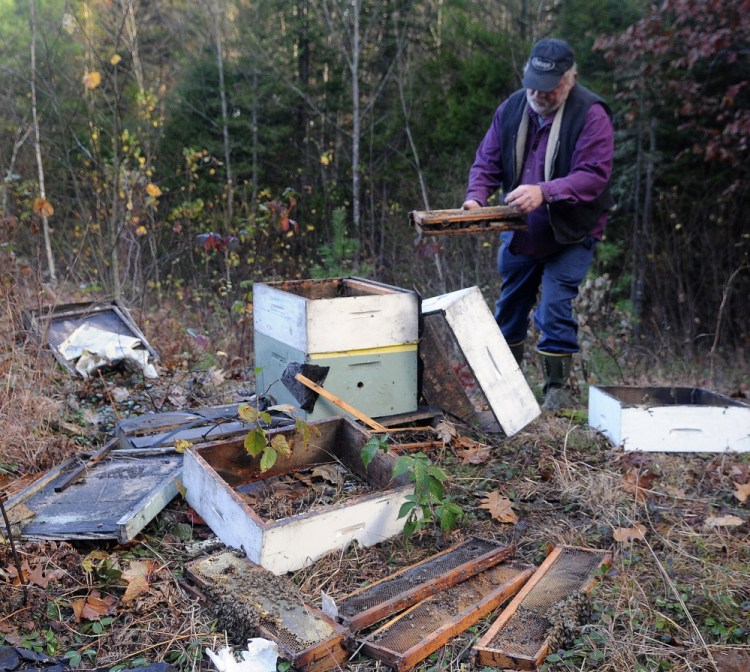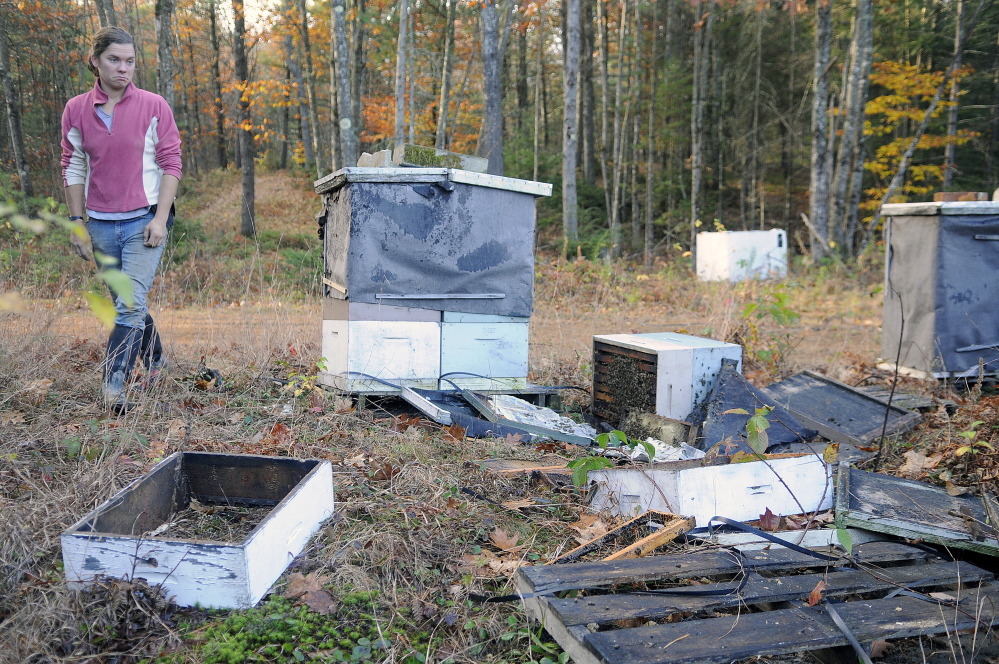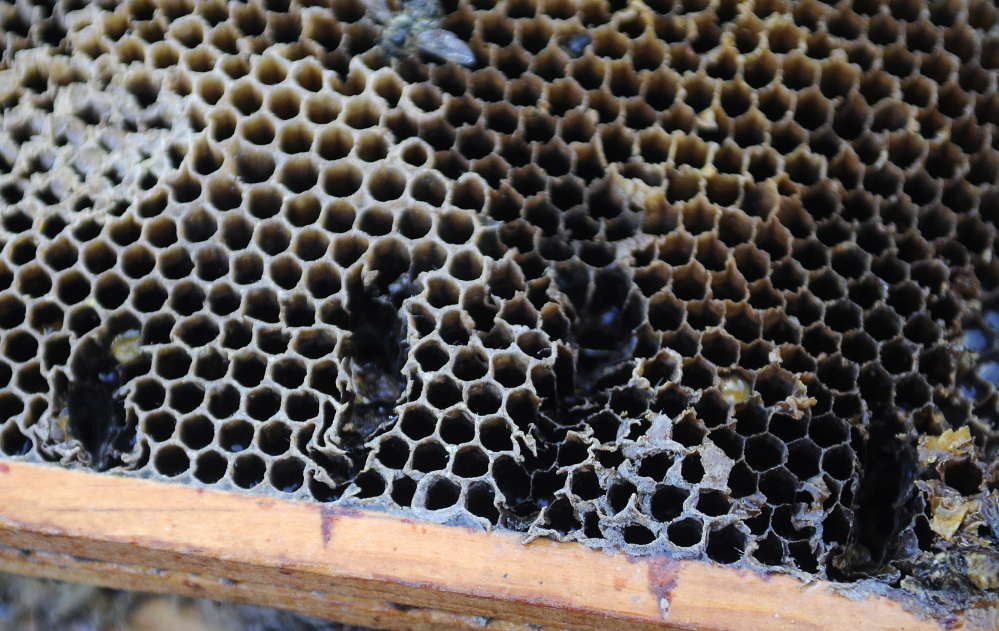The owner of a pair of beehives recently destroyed by a hungry bear at a Wayne farm says the incident is more proof that banning bear baiting and trapping would have catastrophic consequences on his business.
“If they pass this vote on the bear referendum, it’s going to put me out of business,” said Tony Bachelder, owner of Tony’s Honey and Pollination Services in Buckfield. “The bears will be so thick we won’t be able to control it.”
Bachelder, who with his son owns and maintains about 900 hives across the state, said the number of hives destroyed by bears has been increasing in recent years. Most recently, bears destroyed two hives at Stevenson’s Strawberries on Tucker Road in Wayne. After causing damage in recent days, a bear returned Monday night and claimed another hive.
“It’s totally demolished,” Bachelder said. “He ate it completely, bees and all.”
Next month, voters will decide whether to enact controls on how bears can be hunted. Question 1 would ban the use of dogs, traps and bait to hunt bears except to protect life or property or for research. Supporters of the ban say bears that cause property damage still would be controlled, even if the ban passes.
“Game wardens can continue to use any method to address problem bears,” Katie Hansberry of Vote Yes on Question 1 said in an emailed statement.
Ford Stevenson, who owns the farm, said bears never had damaged the strawberries or beehives before.
“It’s kind of too bad,” Stevenson said. “The bees are having a hard enough time as it is. It’s a little setback for them.”
Bachelder, a beekeeper for 39 years, said bears this year have destroyed hives at about 10 locations. At one of those spots, he erected a fence and charged it with 7,000 volts.
“The bear has been through that fence three times,” Bachelder said. “They can figure out a way to get them if they want.”
Bachelder said he plans to add a fence at Stevenson’s farm to see whether that will work. He also plans to add enough honey to the damaged hive to enable the bees to get through the winter.
Bachelder said he is not a bear hunter, but he opposes Question 1 because of the potential financial impact on his business. Each hive has about 70 pounds of honey, which the bees need to survive the winter, Bachelder said. The honey in each hive alone is worth about $280. The cost of the hive and bees pushes that figure closer to $500 for each destroyed hive.
Bachelder said without the bait, traps and dogs, the bear population will increase and so will the number of damaged hives. Removing the bait also would drive the bears to other food sources, such as beehives, Bachelder said.
“When they bait them in the fall, it keeps them out of the bees,” Bachelder said.
But Hansberry said baiting bears only makes the problem worse because it provides easy access to a vast quantity of high-calorie food, which increases reproduction while making bears accustomed to people.
“The dumping of millions of pounds of junk food into our woods every year grows the bear population and creates nuisance bears,” she said.
The bear population has grown by 30 percent in the past 10 years, and there has been a 25 percent increase in nuisance complaints, Hansberry said. Studies show bears’ biology is regulated by food availability. Baiting leads to early maturation of females, more cubs per litter and higher cub survival rates, Hansberry said.
“Baiting is the absolute worst thing you can do to manage bears if you want to minimize conflicts with people,” she said.
Craig Crosby — 621-5642
Twitter: @CraigCrosby4
Send questions/comments to the editors.




